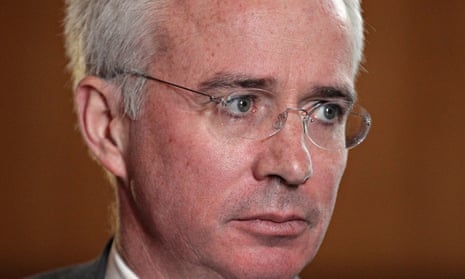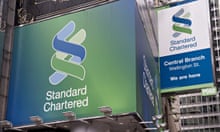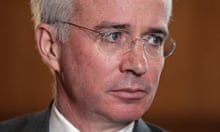The management of Standard Chartered is facing renewed pressure after being placed under fresh scrutiny by US regulators.
Two years after being fined more than £400m for breaching US sanctions towards Iran, the bank revealed that a two-year deferred prosecution agreement (DPA) that was imposed at the time was being extended for three years.
The US authorities are now investigating whether Standard Chartered breached its sanctions rules beyond 2007, the period when the previous offences for which the bank was penalised took place.
The extension of the DPA comes at a time when chief executive Peter Sands is facing calls from investors to bolster the performance of the bank which has issued three profits warnings in the past 12 months, breaking a streak of consecutive profit rises that lasted throughout the banking crisis.
Under the terms of the DPA, the US Justice Department and New York county district attorney’s office are imposing a monitor inside the bank “to evaluate and make recommendations regarding the group’s sanctions compliance programme”.
In a statement issued after the London stock market closed, Standard Chartered said the agreement acknowledged that steps had been taken to comply with the original promises to enhance its sanctions compliance functions.
It said it would now work with the authorities to made further improvements to its US economic sanctions programme to reach the standard demanded by the DPA.
“The agreement also indicates that the group is cooperating with an ongoing US sanctions-related investigation but that additional time is needed to complete the investigation and determine whether any violations have occurred,” the bank said.
The bank’s shares have sunk to five-year lows after the slide in its performance. When reports of the potential investigation first surfaced at the end of October its shares took a further knock. It warned in August that the DPA could be extended but had not elaborated at the time.
The 2012 fine by the US authorities came after Standard Chartered had weathered the financial crisis relatively unscathed but further problems were caused for the bank when its chairman Sir John Peace was forced to apologise for referring to the breaches of sanctions as“clerical errors”.
The board of the bank, which is based in London but conducts the majority of its business in emerging markets, has issued two statements of support to Peace and Sands, one of the few bosses to remain at the helm of their bank since the 2008 banking crisis.
Sands and his top management team spent three days in Hong Kong last month making presentations to investors to reassure them about its capital position and outline their strategy for the bank, which includes $400m of cuts to costs.





